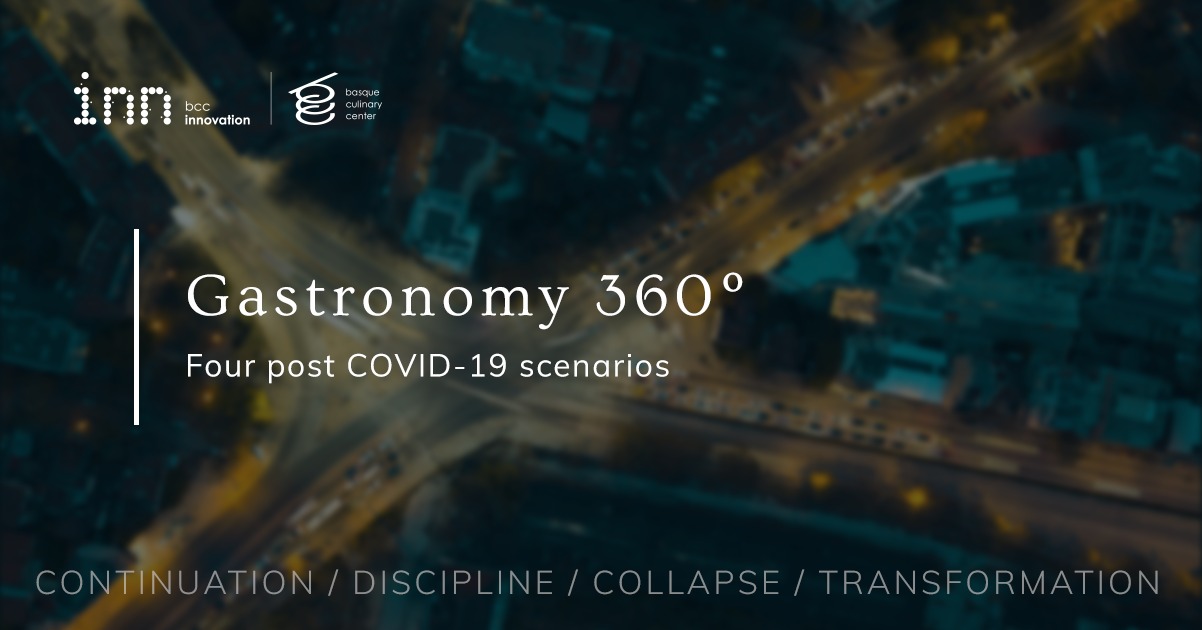Gastronomy 360º: Four post COVID-19 scenarios
What macroeconomic scenario will we find after the first COVID-19 wave? Will the crisis come out in the form of an L, U, V or W? How will the consumer change? How will all this impact on the models of business of companies ?, what new business opportunities may arise?
These are some of the uncertainties that we take as a reference at BCC Innovation to present this report, which does not seek to predict the future, but rather to help think and explore the complexity of these new contexts, analyzing the current socioeconomic panorama and projecting scenarios for the months and years after the COVID-19 context. It is about providing vision and reflection so that companies and actors in the gastronomy value chain strengthen their competitiveness and resilience by promoting innovative actions. After prioritizing the stabilization of the company, it is important to understand what path we want to follow at the business level and not lose sight of new opportunities in realities that are transforming at a dizzying pace.
We have built this prospective exercise based on the understanding of the gastronomy of the Basque Culinary Center and we, BCC Innovation, as a Technological Center specialized in Gastronomy. Starting from this comprehensive vision, possible changes are analyzed throughout the value chain, including its interaction with other relevant sectors, among others: health, tourism, etc. Based on Jim Dator’s “Four Futures” model, we present 4 possible post-COVID-19 scenarios:
- Continuation scenario: “Business as usual”
- Discipline scenario: “Keep calm, carry on”
- Colapse scenario: “Systemic failure”
- Transformation scenario: “Leasons learned “
Here you can download the report to see its full description of the four: the clues, the keys to the macro scenario, main ideas of each particular economic, political and social context, the implications in gastronomy, focusing on the different sectors of the chain of value: production, industry, distribution, commercialization and consumers, defined for each scenario.
At the end of the report, its authors (Estefanía Simón-Sasyk, Blanca del Noval and Paula Torán Pereg, researchers and chefs at BCC Innovation who develop gastronomy strategy projects for companies and international public administrations with a focus on sustainability and value generation with impact intergenerational) remind us that “The future belongs to those who dare to dream it. In times of uncertainty, it becomes especially important, not only the “what to do”, but the “how”.



